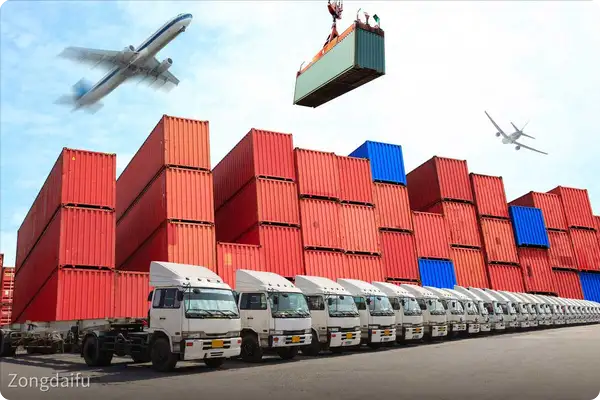International freight transportation refers to the activities of cross-border freight transportation, including sea, air, land transportation, etc. As globalization continues to advance, international freight transportation plays a crucial role in international trade. This article will introduce the concept, form and characteristics of international freight transportation.

A. The Concept
International freight transportation refers to the activities of cross-border freight transportation aimed at transporting goods from one country or region to another country or region. International freight transportation requires reliance on various modes of transportation and logistics services to ensure that goods can reach their destination quickly, safely and effectively.
b) The form
The forms of international freight include the following:
Maritime transport: Maritime transport is currently the most important mode of transport in international freight transport, maritime transport is mainly divided into freight transport and container transport.
Air transport is one of the fastest forms of international freight transport, especially for high-value, lightweight and small goods.
Rail transportation as a fast, safe, reliable and energy-efficient mode of transportation, has also been widely used in international freight transportation.
Road transport is a flexible, fast and reliable mode of transport, suitable for the transport of medium and short distances, small batches of goods.
Multi-mode transportation refers to the process of transporting goods from the starting point to the end point through different modes of transportation, using different modes of transportation, to seamless connection and coordination of transportation.
c) The characteristics
International freight transport has the following characteristics:
Cross-border: International freight crosses national borders and needs to comply with relevant laws and regulations such as trade, customs and taxation between countries.
Multiple modes of transport: International freight needs to rely on a variety of modes of transport, such as sea, land, air, to meet the needs of different types of goods.
Complexity: International freight transport involves several links, including cargo unloading, warehousing, customs clearance, reporting, insurance, transportation, etc., requiring the cooperation of several service providers.
Risk: The risks faced by international freight transport include unexpected losses in the transport process, loss of property, legal disputes, etc., which require appropriate risk management measures.


 Follow customer service WeChat
Follow customer service WeChat